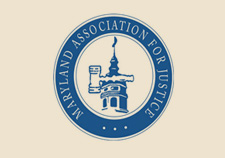Celebrities are not immune from the risks of surgery. Their families are not immune from the heartbreak of bad surgical results. When comedy icon Joan Rivers went into cardiac arrest on August 28th, she was reportedly undergoing a procedure on her vocal cords. The vocal cords are delicate instruments, however, and doctors who perform even minor procedures on vocal cords run the risk of causing permanent injury.
Ms. Rivers’ cardiac and respiratory failure may have been caused by a lack of oxygen getting to her brain. She was undergoing an endoscopy (where a small camera is inserted into the body so the doctor can view areas not easily seen otherwise) in her throat, a procedure which can cause an “air spasm;” this cuts off the patient’s ability to breathe, because the vocal folds cannot move freely. Because of Ms. Rivers’ advanced age, there are also more risks when it comes to using anesthesia. The clinic is being investigated, but the results of the investigation are not yet public. Due to confidentiality of these investigations, the public may never learn the true facts.
Vocal fold paralysis results in large payouts
The National Institute of Health analyzed 21 years’ worth of malpractice claims involving vocal fold paralysis. The study, based on reports by the 16 largest malpractice insurers, found that claims were filed after multiple types of vocal cord surgery. Payouts totaled over $10 million ($18 million adjusted for inflation).
Today, however, more and more people are seeking vocal cord surgery to give them a more youthful sound – like plastic surgery for your voice. (ABC News calls it a “voice-lift.”) The increase in the amount of surgeries being performed increases the opportunities for a mistake. These risks also increase when patients seek treatment outside of hospitals and in private clinics, such as Ms. Rivers did. There are private practitioners out there who have been banned from practicing in hospitals – and yet, because clinics and private practices face less scrutiny than hospitals, those doctors are free to perform procedures on patients without ever revealing their prior malpractice claims or morbidity rates.
Vocal cord paralysis has some very serious consequences; a patient could develop pneumonia, lose the use of his or her voice permanently, or even choke to death. And while vocal surgery may be necessary at times (say, to remove nodes or tumors), the procedures must be done with the utmost care. For more information about surgical malpractice, we invite you to visit Plaxen & Adler, P.A.





